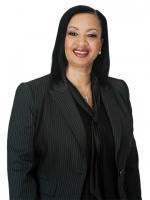Overview
On Oct. 13, 2014, the First District Court of Appeal issued a significant decision in Burdeshaw v. The Bank of New York Mellon, et al., -- So. 3d -- (Fla. 1st DCA Oct. 13, 2014) which now calls into question whether a note purchaser can rely on the business records of prior note holders and servicers. This includes business records establishing the loan’s starting balance and payment history which are routinely used in foreclosure actions to establish the amounts due and owing under the defaulted note and mortgage. Burdeshaw may signal a significant shift in the way evidentiary requirements are applied in foreclosure actions throughout the State of Florida and should be considered when seeking to foreclose on an assigned note and mortgage.
The Burdeshaw Opinion
Burdeshaw reversed a final judgment of foreclosure on the grounds that the evidence supporting the amount due and owing under the defaulted note and mortgage was inadmissible hearsay. Like in most foreclosure actions involving an assigned loan, the note holder relied upon the business records of its predecessor to establish the starting balance, subsequent default and amounts due and owing. In what could be a significant departure from prior opinions addressing the issue, the Burdeshaw court held that a current note holder could not rely upon its predecessor’s records unless those records were properly authenticated as business records by a witness from the prior holder or servicer with knowledge of those records and how they were generated. The Burdeshaw court not only rejected the proposition that a note holder can rely on its predecessor’s business records but went on to dismiss the case without giving the note holder the opportunity to correct its proof. This decision could have a significant impact on the ability of debt buyers, assignees and loan servicers in Florida to sustain their burden of proof in foreclosure actions. This is particularly so as it relates to starting balances and loan histories for pre- acquisition periods.
The loan history in Burdeshaw is not atypical and mirrors many loans originated in Florida during the early 2000s. In Burdeshaw, the borrowers executed a note payable to Bay Bank & Trust (Bay Bank) in 2005 which was secured by a mortgage. The note was subsequently endorsed to Suntrust Mortgage, Inc. (Suntrust), which filed suit for foreclosure in 2009. During the pendency of the foreclosure case, the loan was transferred again and The Bank of New York Mellon (BNYM) was substituted as party plaintiff in 2013.
In support of its documentary evidence, including the loan history, BNYM called as its sole witness Suntrust’s “default proceedings officer,” whose responsibilities include testifying at foreclosure trials. To substantiate the outstanding loan balance, the loan officer relied upon a printout from her company’s computer system. On cross examination, however, she offered no explanation as to by whom or how fees and expenses were posted to the account. More significantly, she did not know where any of the information regarding payments made prior to Suntrust’s acquisition of the loan came from. No one from Bay Bank was called to testify.
The Burdeshaw court found that the evidence regarding the amount of the indebtedness was inadmissible hearsay. The computer printout relied upon by the loan officer did not constitute “business records” within the hearsay exception because it had not been authenticated properly. She did not know who, when or how the data entries were made onto her company’s computer systems. The officer had even less knowledge about the business practices of the prior loan servicer, testifying that the prior records would have come from someone familiar with the origination of the loan based upon “general mortgage industries practices.” The Burdeshaw court specifically noted and held as follows:
“Ms. Johnson's assumption that the original loan amounts ‘would have been input by someone handling the origination of the loan’ was merely supposition, based on her general knowledge of ordinary mortgage industry practices, not any specific knowledge about this debt or the transaction of the information between the original lender and subsequent servicers, including Suntrust. She was thus unable to show any of the requirements for establishing a proper foundation for the amounts or the documents she relied on.”
In the absence of a proper foundation for the admissibility of the printouts, the appellate court concluded that the trial court erred in determining the amount owed on the note and, accordingly, reversed the final judgment of foreclosure. Finding no reason to allow BNYM to retry its case because of its failure of proof, the appellate court reversed the final judgment of foreclosure with instructions on remand for the entry of dismissal of the case.
The First District’s Application of More Rigid Standards for Admissibility and Authentication of Business Records
In Burdeshaw, the court held that the account records could not be relied upon because the witness was unable to properly authenticate them in accordance with the requirements of Section 90.803(6), Florida Statutes. This holding represents a more rigid application of the business records rule than applied by some other courts. For example, in Wamco XXVIII, Ltd. v. Integrated Electronic Environments, 903 So. 2d 230 (Fla. 2d DCA 2005), the court allowed the current holder of a loan to rely upon the loan payment histories of a prior holder even though its witness did not know who put information into the prior holder’s computer system. It is possible that Wamco could be reconciled with Burdeshaw because, unlike Burdeshaw, in Wamco the witness testified that the current holder followed a procedure to verify the accuracy of its predecessor’s loan history information. Even if such reconciliation may be made, the pitfall could be that in Wamco the “verification procedure” was not specified and exactly what verification procedure will be sufficient remains an open question.
Implications For Loan Purchasers and Other Assignees
We expect that Burdeshaw may have a significant impact on the ability of loan purchasers to rely upon records of prior holders and/or servicers, especially in cases where a pre-acquisition default is present. Following Burdeshaw, a note holder will likely be held to a stricter evidentiary standard and may no longer be able to mechanically rely on origination and payment information that it received from its predecessor unless it can properly authenticate that information or establish that it followed a “verification procedure” which, to date, remains undefined.





 />i
/>i
